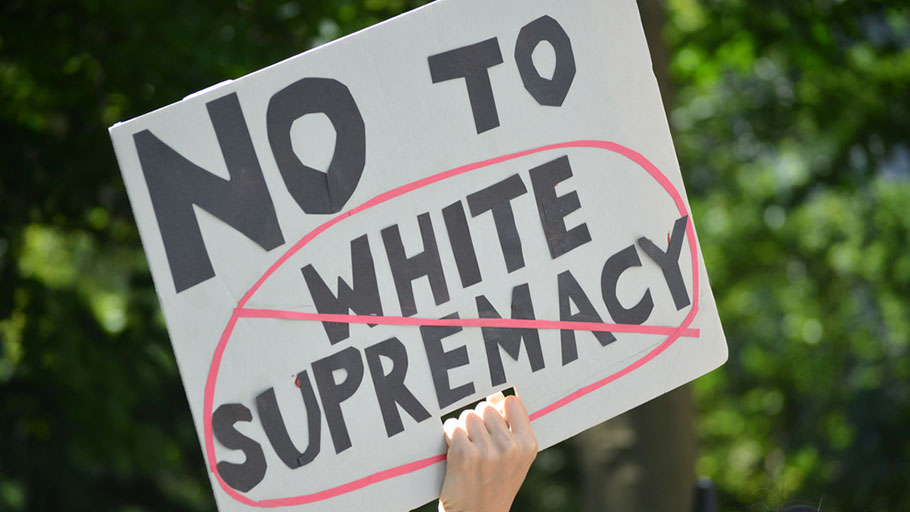White people take their freedom for granted.
By Kristin Hull, AlterNet —
My white privilege shows up on a daily basis, in big and small and even almost imperceptible ways. It is the water I swim in—so it can often be hard for those of us who are white to detect it at times. While my weeks can be stressful and chaotic as I manage the day to day of being a finance entrepreneur and a single mom, I also recognize that there is a certain ease about my life that is afforded to me due to my physical appearance and, specifically, the color of my skin.
If I’m running late and don’t see my wallet, I feel perfectly comfortable leaving the house without any form of identification. When my wallet went missing, I drove with an expired license for months, putting off an appointment at the DMV because it just didn’t seem convenient for me to get there right away. It was not a huge priority. Once in 2013, I was at the airport without identification and was even permitted to fly. Why? Because as a white woman, I am seen as “upstanding,” trustworthy, and not a threat.
Unlike many of my darker-skinned friends, I move around the city with ease and drive without fear of being pulled over by the police or being caught without a current identification. My car is in good shape and I have the money to pay for current registration tags. My economic status is another factor that is part and parcel of my privilege, keeps me safe, and free from police harassment. Why? Because as a blond white woman, driving a Ford Hybrid, I am seen as trustworthy and not a threat.
When I go grocery shopping, or stop in at any store that I like, I do so fully assuming I will be welcomed, treated courteously, and attended to with respect. This expectation is far from the experience of my friends of color who are often closely watched, suspected of shoplifting, and at times asked to leave for no reason. Why? Because as a blond white woman, I am seen as trustworthy and not a threat. I am also seen as having economic means, as someone who is there for “legitimate” reasons, will purchase from shop owners. I am seen as someone who will contribute to their success.
Perhaps the most white privilege I experience is as a parent. My teenage boys put on their hoodies at 10 p.m. to go out to Mi Rancho for burritos in Oakland without thinking twice. I stay home with relaxed peace of mind. My black friends do not have this luxury of feeling completely unworried about the safety of their children, whether it’s 3 p.m. and on their way home from school, or, much less at 10 p.m. at night.
We, as well-meaning white people, often take for granted the freedom with which we walk around. I will never forget working on my dissertation with my African-American colleague Shannon. We were using the home of a professor for our writing sessions and when it came time to take out the garbage neither one of us knew where to take it. Not intimidated in the least, I got the garbage bin and started walking around the apartment building, turning door handles that looked like they might lead outside or to a place to put the garbage. I felt entitled enough to walk around a building where I’d never been, where no one knew me, turning corners and attempting to open random doors, garbage bag in hand. Shannon shared with me how being black and unknown meant she would not think to do something she considered so bold, and so unsafe.
While sometimes people are surprised to find out about the letters after my name, they are never doubtful about my academic experiences or intellectual abilities. And while I certainly encounter discrimination in the business world as a female founder and entrepreneur in finance, I am still privileged by the color of my skin in many ways. It is this cultural, and institutionalized hierarchy–unwritten rules that none of us wrote–that I am calling attention to here.
All of our experiences are individual, yet there are certain patterns–marked by racial perceptions, assumptions and unconscious bias– that run throughout our daily lives. When we put ourselves in other people’s shoes, even for just a moment, we can begin to consider how privilege affects the freedom and sense of possibility we as light-skinned people experience in the world, and develop more awareness about our own behaviors and others. This understanding can lead to the compassion necessary to sow the seeds of change. This is my hope for all of us during these difficult times.
Kristin Hull is the founder and CEO of Nia Impact Advisors She is a long time activist, especially in the field of education.















